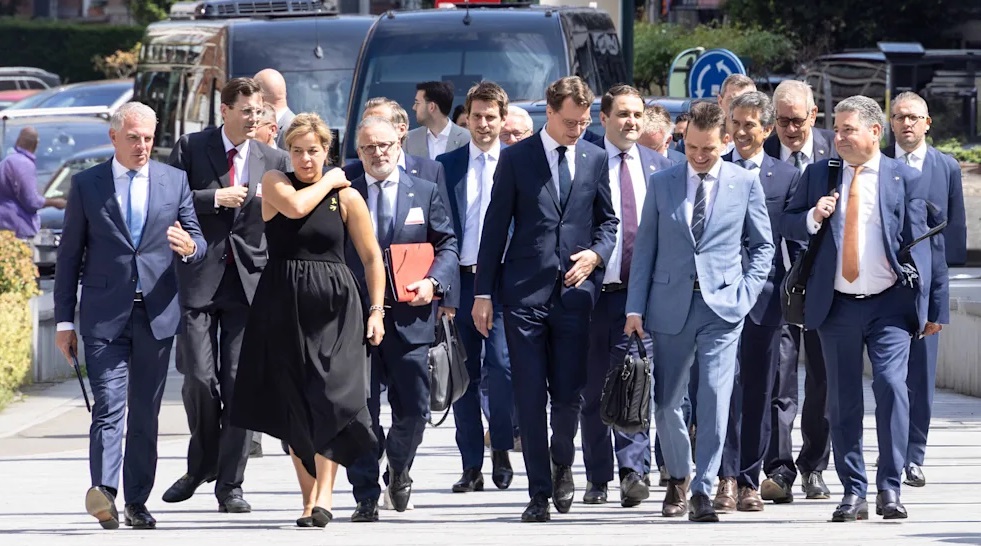 German business leaders meet with European Commission chief.
German business leaders meet with European Commission chief.
Photo: bild.de
Twelve chief executives of major companies and the Minister President of North Rhine-Westphalia (NRW), Hendrik Wüst (CDU), met with European Commission President Ursula von der Leyen in Brussels on July 2. As the EU enters a critical stage in its tariff negotiations with the United States, the heads of primarily NRW-based companies discuss the challenges and opportunities facing the European economy.
According to the NRW State Chancellery, the working lunch with von der Leyen attended by the CEOs of Eon, Henkel, Evonik, Uniper, Thyssenkrupp, DHL, Rheinmetall, Hochtief, Rewe, Lufthansa, Covestro, and Lanxess.
Government sources noted that Germany, as Europe's largest industrial nation, and NRW, as its economic and industrial hub, are especially impacted by current global and intra-European developments. The CEOs participating in the Brussels meeting represent companies with a combined turnover of approximately €500 billion and nearly 1.5 million employees.
"As the major industrial player in Europe, we need to make it clear in discussions with EU leadership what our needs are," said Wüst, whose initiative led to the upcoming meeting in Brussels. "We must not allow the talk of transformation to result in deindustrialization."
Time is running out for Europe in the ongoing tariff dispute with the United States. US President Donald Trump has suspended high import tariffs for 90 days, with the deadline set to expire on July 9. Trump has already threatened to impose tariffs of 50 percent on EU imports. German Chancellor Friedrich Merz (CDU) has called for faster negotiations and a swift decision for key German industries such as automotive, mechanical engineering, chemicals, and pharmaceuticals.
At the same time, the ‘Bild’ newspaper notes that it is unusual for the head of the EC to meet with representatives of the business community, and even more so with representatives of only one country.
The heads of the concerns are most dissatisfied with the unresolved problem of American tariffs, excessive bureaucracy and excessive attention to climate protection issues. For example, the head of Lufthansa, Carsten Spohr, pointed out the company's reduced competitiveness due to compliance with EU environmental requirements.
This is the first such decisive protest by a group of the largest German companies that are dissatisfied with the economic policy of the European Commission.
The confrontation between business and political circles of the European Union demonstrates an open confrontation that they previously tried to avoid. This is evidence that the economic crisis has begun to affect leading businesses in Germany, and, apparently, all of Europe.
read more in our Telegram-channel https://t.me/The_International_Affairs

 10:37 05.07.2025 •
10:37 05.07.2025 •






















